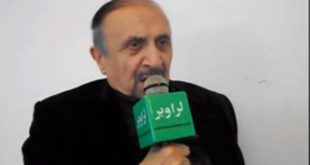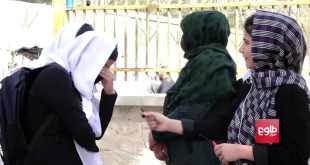Edmund Burke once wrote that: An event has happened, upon which it is difficult to speak, and impossible to be silent. War crimes are such events.
2001-Present: The American-led-NATO assault upon and occupation of Afghanistan has witnessed numerous infractions of internationally-recognized statutes upholding human rights and protections during the prosecution of war. Grisly photographs depicting American military personnel posing with the decapitated remains of mostly Afghan civilians, non-combatants killed indiscriminately in raids have surfaced among the military units as macabre’ souvenirs and subsequently circulated on the internet and in macho, uniformed segments of the print media. Of late, human rights councils have expressed concern over American detention and interrogation practices in both the Iraq and Afghan theatres of war. Practices that have led to inhuman excesses known as ‘waterboarding,’ sleep deprivation and other forms of torture proscribed under international decorum, covenant and law.
As we have come to realize however, members of a super-power, in particular those of high rank or station are rarely if ever investigated, indicted, and brought to trial for the most heinous crimes known to man. Recently in an attempt to control the narrative and posit the war in justified terms and to thereby assuage public outrage, charges have been filed against a small number of American soldiers of enlisted rank for such unconscionable acts. Such charges are generally filed against only those of low rank and standing. However, it is indisputable that the architects of war are the supreme criminals under the law, oftentimes self-appointed guardians of the statutes, but in a predictable mockery of justice or double standard, said architects are generally of high office and therefore are never brought to task.
With the publication of photographs depicting obvious war crimes and in a recent spate of international- conscience however some European countries have of late cited former Bush administration officials to include the former president for violations of codified war crimes in Iraq and Afghanistan and have issued arrest warrants addressing specificities. To enforce such warrants, George W, Bush, Dick Cheney, Donald Rumsfeld, Condoleezza Rice, Colin Powell and other administration officials could only be arrested were they to travel to these specific international- jurisdictional venues. As such, warrants however are not enforceable in the United States, notwithstanding the fact that war crimes are in violation of both national and international statute under U.S. law, and as the United States appears as signatory to numerous international treaties and covenants prohibiting the execution of war crimes. As a powerful member of the United Nations with veto power, and in an obvious double–standard and mockery of justice, it has as yet to materialize for the U.N. to investigate and or prosecute the U.S. and or Russia, the most powerful Members for numerous violations to include the supreme crime under the statutes, ’War of Aggression.’ While the Allies vigorously prosecuted Nazi war criminals in the wake of World War II, both Russia and the Unites States have been granted what appears immunity from prosecution for war crimes by the United Nations Human Rights Council and the International Criminal Court…the so-called watchdogs for human rights.
1979-1989: During the Soviet invasion and occupation of Afghanistan, and in the immediate aftermath, numerous war crimes were committed by the Soviet 40th Army of occupation and factions vying for power following the Soviet withdrawal in 1989. Most violations were committed by the military wings of Afghanistan’s minority factions who had allied themselves with the Soviet occupiers. The following account of acts of depravity are graphic, gut-wrenching and without doubt, ‘difficult upon which to speak’, yet, of which Edmund Burke opined and wrote so eloquently, ‘it is impossible to be silent.’
In the early years of the Soviet/Afghan War, a premeditated atrocity was visited upon the inhabitants of a remote northeastern Afghan hamlet known as the Wakhan. This easternmost salient of Afghanistan boasts a contiguous northern demarcation with Tajikistan, a northeastern border with China and boasts of southern borders with Gilgit and Hunza. Designated Bazla Gumbat by Soviet cartographers, this tiny village was home to 350 Kirghiz families who carved their existence from this wild and desolate- topography as shepherds.
Considered of strategic importance, Bazla Gumbat became the focus of Soviet military analysts who sought to address three criteria: Of foremost consideration was the encirclement of China, to be accomplished with the construction of an intermediate-range nuclear missile base. Next in importance for the Soviets was the interdiction of arms destined for the Afghan Resistance and the flow of volunteer fighters from China’s Western Province, Xinjiang.
To accomplish their goals the Soviet High Command reasoned that the area must be de-populated. To this end, with unrestrained brutality, the Soviet Military slaughtered the entire population of Bazla Gumbat. Micro-Toxins were the weapons of choice. Weapons since time immemorial deemed inhumane by the international community and weapons banned by the Geneva Conventions, a convention/treaty to which the Soviets were signatory. For similar allegations of the use of and deployment of banned weapons the US destroyed Iraq and deposed its leader Saddam Hussein through military force. One of the many charges that precipitated his downfall was his use of proscribed weapons against the Kurds…the identical biological weapons as used by the Soviet military in Bazla Gumbat (7, 8, 9)
War Crimes in Kabul:
In April of 1992, Massoud’s intelligence organs took over the structures of the KhAD in Kabul and founded a new secret police, the ‘National Security.’(1) In addition to prison camps in the Panjsher Valley, they maintained a secret-service prison in Kabul where prisoners were tortured under investigative arrest (Danesch, p. 37). The new apparatus is known as the Rijasat-e-Tahqiq (Office of Investigation), and rumor has it that five thousand agents and operatives are active throughout Afghanistan (Danesch, p. 37). A young man who had been under ‘investigative arrest’ for sixty days told of being crammed with thirty other prisoners into a tiny underground cell, without water or sanitary facilities, before he was transferred to a labor camp in the Panjsher. He was blindfolded for weeks, beaten, sodomized with a broken bottle, kicked, and tortured with thumb screws. He now lives in constant pain from the internal injuries he was forced to endure. (2, 7)
A prominent Afghan journalist, Nawid Fraidoon tells of the brutal treatment of women, and of a mass execution in Kabul by Massoud’s security service: (3, 7, 8, 9)
Fraidoon: When night fell, in one of the buildings where eighty women were, many guards entered and mass-rape started. By flashing torches the victims were selected and raped on the spot. There were terrible cries, women and girls were also taken away and never seen again. These mean acts were repeated night after night. There was no sanitation and soon disease started. There was no food for the first three days, and very little afterwards. Within two days forty babies had died in their mother’s arms in the confinements. The women were kept there for many weeks and the number of deaths increased. Babies died every day, up to fifteen a day.
‘The tale is always the same.’ Fraidoon said. ‘Starvation, overcrowding, brutality and death conditions, which make Pul-i-Charkhi mild by comparison.’ A chilling account of the terror and inhumanity extant under the government of Rabbani and Massoud follows from the notes of Afghan journalist Nawid Fraidoon: (3, 7, 8, 9)
Later, a new interrogator, one I had not seen before, walked down the roadway holding a long, sharp knife. I could not make out their words, but he spoke to the pregnant woman and she answered. What happened next makes me nauseous to think about. I can only describe it in the briefest of terms: He cut the clothes off her body, slit he stomach, and took the baby out. I turned away but there was no escaping the sound of her agony, the screams that slowly subsided into whimpers and after far too long lapsed into merciful silence of death. The killer walked calmly past me holding the fetus by its neck. When he got to the house, just within my range of vision, he tied a string around the fetus and hung it from the eaves with the others, which were dried and black and shrunken. (3, 7, 9)
Interviews conducted in Kabul in November 1997, further corroborate the horror under the direction of the leadership of Ali Mazari’s Hezb-i-Wahdat, Dostum’s Jumbish and Massoud’s Shura-i-Nizar respectively. A Wahdat prisoner, captured by the Taliban, recounts a common saying amongst the Hazara during the battle for control of Kabul: (4, 5, 7, 9)
If you kill one Sunni you will go to Heaven, if you kill two Sunni you will reach a higher place in Heaven, if you kill three Sunni and pee in his mouth you will receive a special house in Heaven. (5)
They died by a means which was carefully selected among the most poignant that man can suffer: They were burnt alive not infrequently by a slow fire. They were burnt alive after their constancy had been tried by excruciating agonies that minds fertile in torture can devise. In 1994 alone, and only God knows what took place prior to that, more than 400 intellectuals were abused and murdered by the Rijisat-e-Tahqiq, teachers, professors, actors, film makers, accused by Massoud of collaborating with the enemy. (5, 6, 7, 9)
Notes:
(1) According to Dr. M. Hassan Sharq, when Massoud, in collusion with Communist bankers and government officials, seized the Bank of Kunduz in 1988, 1.4 billion Afghanis were expropriated from the bank by armed Shura-i-Nizar personnel. Five- hundred-ten million Afghanis were earmarked for the expansion of KhAD. This money was to become the genesis of Massoud’s secret police structure that would later terrorize the citizens of Kabul. (Phone interview in Boston between Dr. M. Hassan Sharq and Bruce Richardson, 16 November 1996).
(2) Professor Abdul Shookor Rashad, Academy of Sciences, Kabul, informed us during an interview (30 October 1997) of the horror and moral depravity associated with Massoud’s intelligence services. ‘People were forced to eat the flesh of the dead and their own excrement,’ he said. He also informed us that during the same period the Hazara beheaded their prisoners with red-hot instruments to induce involuntary convulsion and thereby provide unfathomable, grotesque, deranged entertainment: The Hazara gleefully referred to their headless victims as the ‘dancing dead.’ Translation: Afghan journalist Sayed Noorulhaq Husseini.
(3) Citations: ‘Afghanistan’s Intoxication with Violence’, “Swiss Review of World Affairs”, Mustafa Danesch, October 1996, pp.37-38.
(4) An interview: Bruce G. Richardson, Professor Abdul Shookor Rashad, Afghan journalist Sayed Noorulhaq Husseini, Kabul, Afghanistan, 30 October 1997.
(5) ‘Ethnic Violence in Kabul’, “The “Dispatch”, Nawid Fraidoon, 9 September 1996, pp. 12A-13A.
(6) Dawat, ‘Top Afghans tied to ‘90s Carnage, Researchers say’, Rod Norland, 23 July, 2012, Criminals named as complicit in the shocking slaughterhouse expose are: Fahim, Khalili, Noor, Akhund, Khirkalua, Massoud, Dostum and Mohaqiq. A question from international jurists based on this report and article arises, ‘Why don’t we put their international backers on trial’?
(7) The KGB in Afghanistan by Vasily Mitrokhin, Working Paper #40, p. 153, Woodrow Wilson International Center, Cold War in History Project, 2002, Washington, D.C. Mitrokhin, a former KGB archivist who defected to Great Britain in 1992, wrote that Andropov himself took charge of the cover up concerning Bazla Gumbat in the face of increased international recognition and criticism of Soviet atrocities during the war.
(8) See: The Laws of War, Adam Roberts and Richard Guelff, 1989, Second Edition, pp. 17-18, 137-146.
(9) Communications by Members of the Afghan Diaspora about Events in Afghanistan to US Leaders September 21, 1979-October 7, 2013, Dr. M.Siddieq Noorzoy, 2013.
Though extremely difficult for most to comprehend, let alone discuss…war crimes constitute a dark subject, and demonstrable, abject-inhumanity in the face of which ‘it is impossible to remain silent.’
Bruce G. Richardson
 لراوبر ویب پاڼه لراوبر يو افغان – تازه خبرونه
لراوبر ویب پاڼه لراوبر يو افغان – تازه خبرونه


